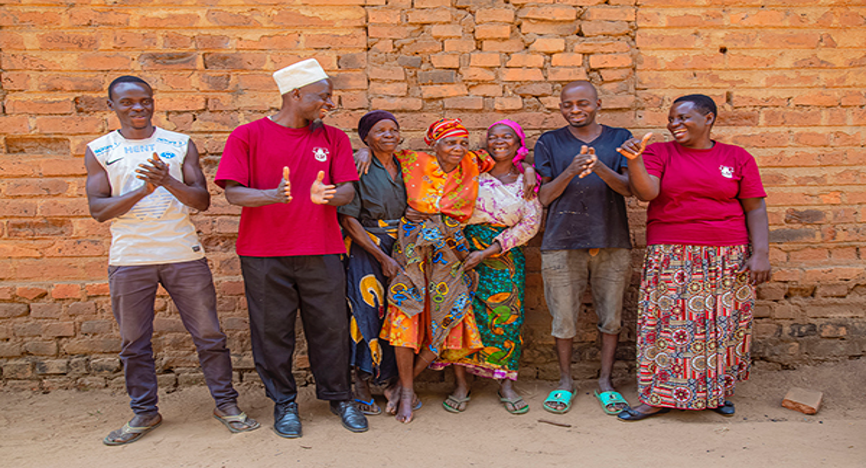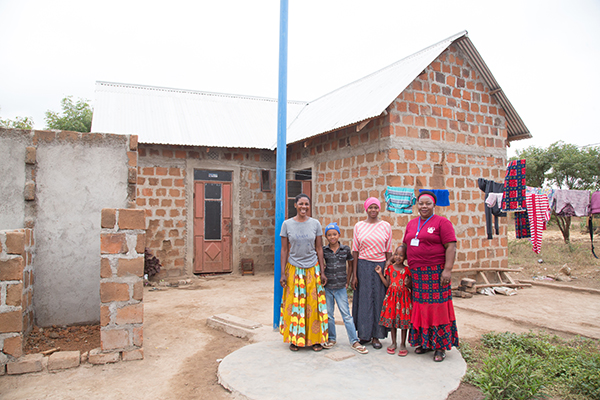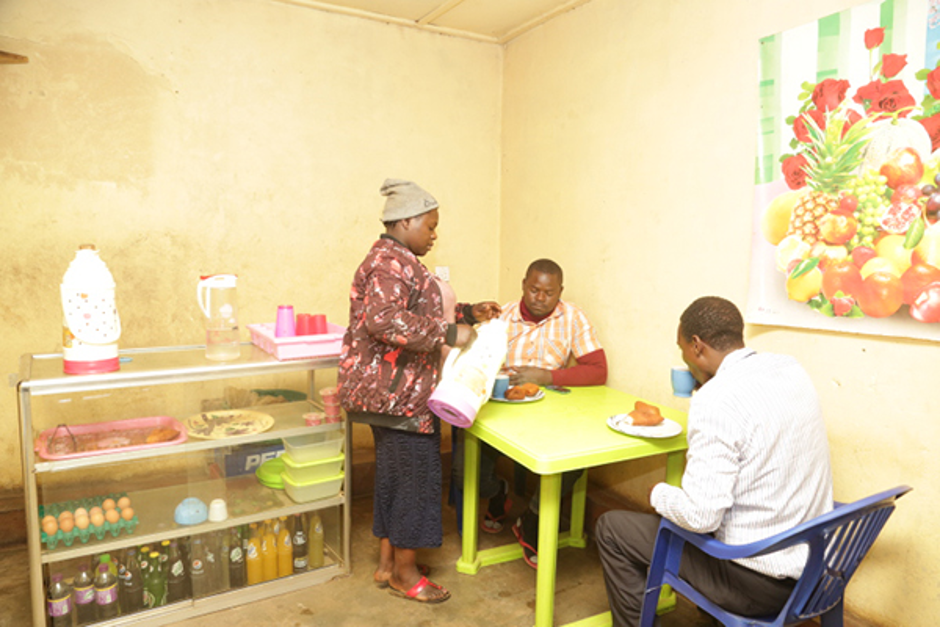Baituna Mwilenga, 80, a disabled (centre) shares her delight with her relatives and paralegals in Malinyi Morogoro after reclaiming her property including 10 acres of land on which she now cultivates rice and earns a living.
CATEGORY: GENDER BASED VIOLENCE
Challenge:
In the dust-clad village of Lugala in the rural district of Malinyi in Morogoro, Baituna Mwilenga, an elderly widow in her 80s has endured a difficult life made worse by an infirmity of her legs that has rendered her unable to walk.
In her lifetime, she had two children of whom one survives and has unfortunately been the source of her tragic life.
“The house I live in was built by a close relative, and I have called it home for many years. Along with this house, I had about 11 acres of land on which my son cultivated rice,” says Baituna.
Clouds of trouble began to form after her legs developed numbness and gradually paralyzed, leaving her unable to work the land and run her own home.
Hashim, her son who lived with her met a woman, married her and left, thus bringing an end to all manner of assistance to her, leaving her to fend for herself and several grandchildren she lived with.
Her advanced age and failing health made it impossible for the family to meet its needs and maintain Baituna’s upkeep. Neighbours and close relatives stepped in regularly and through their charity she managed to get by albeit with immense difficulty.
When Hashim abandoned her, he also took over the rice fields which he cultivated, harvested and sold the rice without extending any semblance of assistance to her. With the hardship growing, Hashim’s son, Omary, and his cousin who lived in the neighbouring district of Kilombero took the decision to relocate to Lugala to live with Baituna, and care for her.
To be able to do this they had to farm the same fields that belonged to her, but were now being used by Hashim. This move one afternoon resulted in a serious physical confrontation between Hashim and his son Omary, due to the fact that Hashim didn’t want them to set foot on the land.
Solution:
Malinyi Paralegal Unit (MPU), the small local organization that provides legal aid and education held one of its regular public meetings in the village grounds around the same time that the conflict prevailed.
Among the few cases brought before the paralegals that day was this unfortunate experience. Omary and his cousin put the case before them and the paralegals immediately set to work to help Baituna access her land and have the chance to live a decent life in her twilight years.
They wrote Hashim asking him to their office to discuss the case, which he did. Baituna also attended the meeting carried by her grandsons the short distance to the paralegals’ office. After a pin-pointed legal awareness session and a relatively contentious discussion, Hashim agreed to hand the land back to his mother, which she immediately passed to her grandsons.
Result:
On a set date local leaders and paralegals were witnesses to the handover, following which Omary and his cousin cultivated late into the season and harvested about almost 12 sacks of rice, now kept in the village barn across the road from Baituna’s house.
“Some of the sacks of rice that we have harvested will provide us and our grandmother with food, and we will sell the rest and reinvest the money in the coming rice season. This is important because it is our primary source of livelihood,” explains Omary.
MPU chairman, Rashid Kiding’a says, land issues come up more frequently than any other around Malinyi.
“Our work is fundamentally a lifeline for people around here ,who simply can’t enjoy the benefits of their inherent rights including land ownership. Baituna’s case demonstrates the frequent difficulties women face, particularly in being recognized as rightful owners of valuable property. Our satisfaction now lies in seeing this old, frail woman looking confident and content now that she has her farmland back in her hands; this is what we work for everyday,” he says.
Baituna’s experience, though bitter, paints a picture of ordinary, disadvantaged citizens, whose daily struggles to attain justice that many take for granted are being successfully upended by men and women, who work to provide legal aid and education across the country.
Their work, enabled by LSF through its Access to Justice Program, allows women, children and men to learn about their rights and seek effective ways of benefitting from them, something that for many years was a distant dream.
During her ordeal, Baituna was consigned to a life of extreme impoverishment made dire by the fact that, she had no access to her agricultural land, and her son on whom she depended, abandoned her.
“I’m enormously delighted that, at least now I have ever-present help and the assurance of food. My son farmed and harvested huge amounts of rice, but I never saw a grain. I’m thankful for my grandsons, without whom my life would be far worse. I must also say that, the valuable help I received from the paralegals has been the source of my peace,” Baituna says in a shaky but relieved voice.


